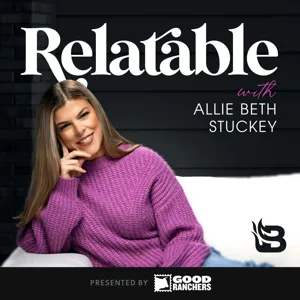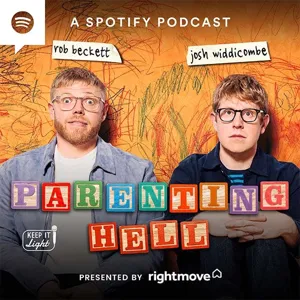Ep. #654: Jonathan Haidt, Fareed Zakaria, Dr. Mark T. Esper

Explore "screen time" with insightful episodes like "Ep. #654: Jonathan Haidt, Fareed Zakaria, Dr. Mark T. Esper", "Introducing Body Electric", "Ep 803 | The Science Behind Screen Addiction | Guest: Dr. Nicholas Kardaras | Part 2", "Ep 216. Open!" and "This Conversation About the 'Reading Mind' Is a Gift" from podcasts like ""Real Time with Bill Maher", "TED Radio Hour", "Relatable with Allie Beth Stuckey", "Sh**ged Married Annoyed" and "The Ezra Klein Show"" and more!




Become a member at https://plus.acast.com/s/sma. https://plus.acast.com/s/sma.
Hosted on Acast. See acast.com/privacy for more information.

Every day, we consume a mind-boggling amount of information. We scan online news articles, sift through text messages and emails, scroll through our social-media feeds — and that’s usually before we even get out of bed in the morning. In 2009, a team of researchers found that the average American consumed about 34 gigabytes of information a day. Undoubtedly, that number would be even higher today.
But what are we actually getting from this huge influx of information? How is it affecting our memories, our attention spans, our ability to think? What might this mean for today’s children, and future generations? And what does it take to read — and think — deeply in a world so flooded with constant input?
Maryanne Wolf is a researcher and scholar at U.C.L.A.’s School of Education and Information Studies. Her books “Proust and the Squid: The Story and Science of the Reading Brain” and “Reader, Come Home: The Reading Brain in a Digital World” explore the relationship between the process of reading and the neuroscience of the brain. And, in Wolfe’s view, our era of information overload represents a historical inflection point where our ability to read — truly, deeply read, not just scan or scroll — hangs in the balance.
We discuss why reading is a fundamentally “unnatural” act, how scanning and scrolling differ from “deep reading,” why it’s not accurate to say that “reading” is just one thing, how our brains process information differently when we’re reading on a Kindle or a laptop as opposed to a physical book, how exposure to such an abundance of information is rewiring our brains and reshaping our society, how to rediscover the lost art of reading books deeply, what Wolf recommends to those of us who struggle against digital distractions, what parents can do to to protect their children’s attention, how Wolf’s theory of a “biliterate brain” may save our species’ ability to deeply process language and information and more.
Mentioned:
The Glass Bead Game (Magister Ludi) by Hermann Hesse
How We Read Now by Naomi S. Baron
The Shallows by Nicholas Carr
Book Recommendations:
The Gilead Novels by Marilynne Robinson
World and Town by Gish Jen
Standing by Words by Wendell Berry
Love’s Mind by John S. Dunne
Middlemarch by George Eliot
Thoughts? Email us at ezrakleinshow@nytimes.com. (And if you’re reaching out to recommend a guest, please write “Guest Suggestion” in the subject line.)
You can find transcripts (posted midday) and more episodes of “The Ezra Klein Show” at nytimes.com/ezra-klein-podcast, and you can find Ezra on Twitter @ezraklein. Book recommendations from all our guests are listed at https://www.nytimes.com/article/ezra-klein-show-book-recs.

The pandemic has caused more than just physical issues over the last couple of years. The U.S. Preventive Services Task Force has recommended that all kids as young as 8 should be screened for signs of anxiety. Leigh Richardson, a licensed professional counselor and the founder of the Brain Performance Center, joined Ask the Expert to discuss.

Happy New Year! Since the beginning of Offline, Jon’s opened each episode asking listeners to submit their questions about the show. Today, joined by his wife Emily Favreau, he finally answers them.
For a closed-captioned version of this episode, click here. For a transcript of this episode, please email transcripts@crooked.com and include the name of the podcast.


As we enter month No. 3 of living under the COVID-19 lockdown, parents and their kids may be getting on each other’s nerves. Parents working from home may be battling with their children – and each other - for computer access. As youngsters try to finish their school year via remote learning, they may be upset that there will be no summer camp this year, and certainly no big out-of-town vacation. Dr. Earl Turner, an expert on child psychology, offers more tips for coping, keeping families safe and handling the relentless drumbeat of coronavirus news.

Stay up to date
For any inquiries, please email us at hello@podcastworld.io